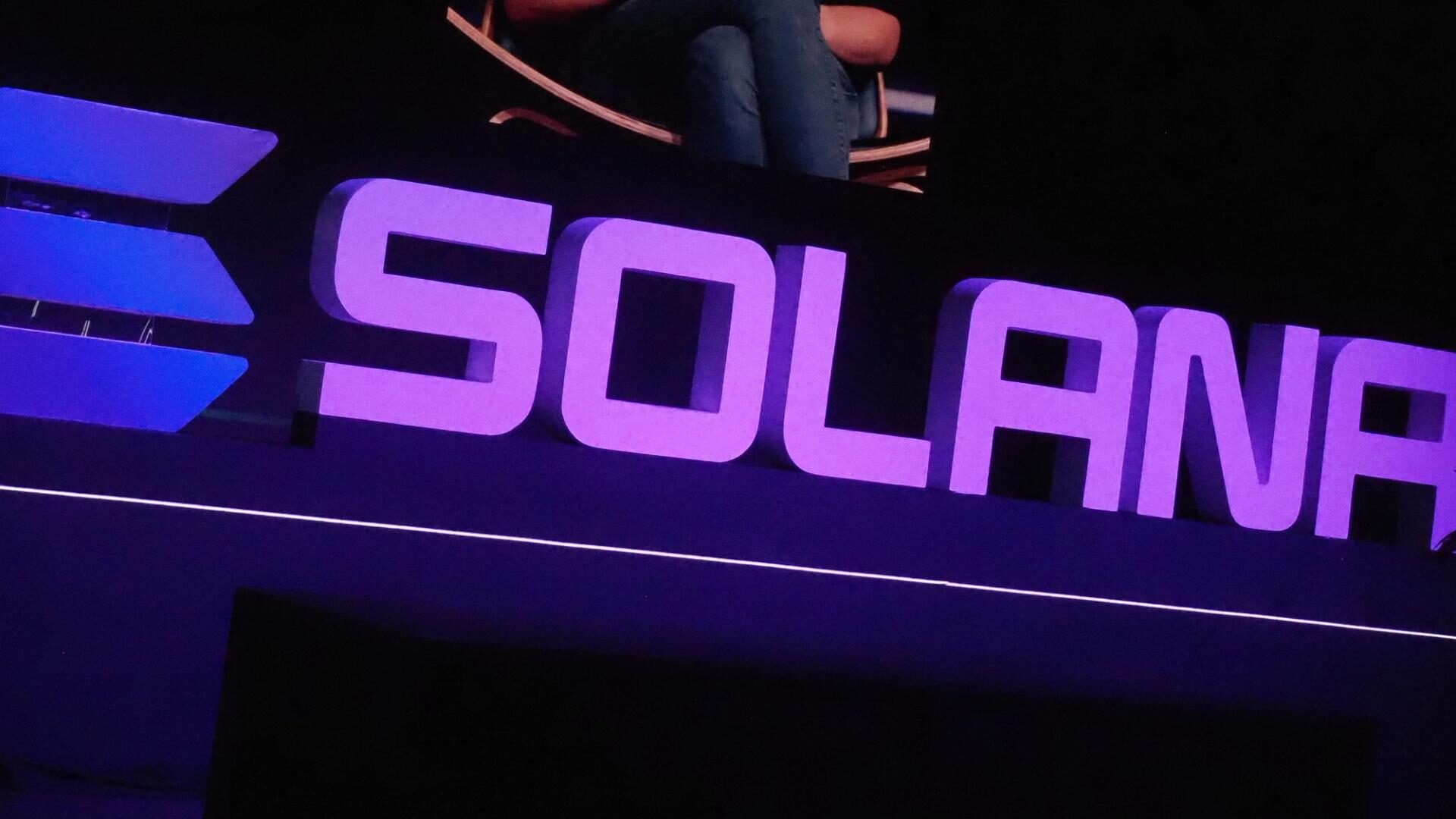BTC
$106,461.79
+
1.17%
ETH
$2,543.57
+
0.35%
USDT
$1.0003
+
0.03%
XRP
$2.3565
–
0.19%
BNB
$651.59
+
0.55%
SOL
$168.66
+
0.53%
USDC
$0.9997
+
0.01%
DOGE
$0.2261
+
1.94%
ADA
$0.7528
+
2.46%
TRX
$0.2704
–
1.12%
SUI
$3.8316
–
0.77%
LINK
$15.78
–
1.28%
AVAX
$22.61
+
1.40%
XLM
$0.2887
+
1.75%
HYPE
$26.50
–
0.94%
SHIB
$0.0₄1452
+
0.62%
HBAR
$0.1958
+
0.44%
LEO
$8.7778
+
0.88%
BCH
$398.19
+
2.17%
TON
$3.0418
–
0.01%
By Shaurya Malwa|Edited by Parikshit Mishra
May 21, 2025, 8:01 a.m.

- Solana developers are planning a major upgrade with a new consensus protocol called Alpenglow, aiming for near-instant finality.
- Alpenglow will replace Solana’s Proof of History and Tower BFT systems with Votor and Rotor for faster transaction processing.
- The upgrade could enhance developer experience and increase demand for SOL tokens by enabling real-time applications.
Solana developers are planning what could be the blockchain’s most ambitious core upgrade to date — one that replaces its current technology stack with a redesigned consensus protocol built for near-instant finality and responsiveness.
The new system, called Alpenglow, was unveiled on Monday by infrastructure firm Anza, a Solana Labs spinout.
STORY CONTINUES BELOW
It proposes replacing Proof of History — Solana’s famously unique “pre-recorded clock” system — and Tower BFT, its existing voting mechanism for reaching consensus.
BFT, or Byzantine Fault Tolerance, is a way for a group of network nodes to agree on a piece of information even if some were lying or broken.
Proof of History is one of Solana’s core features, a type of cryptographic “clock” so validators don’t have to argue over timing when recording data to the network — a shortcut that immensely speeds the network but adds complexity.
So why the proposed shift? Because both systems are relatively slow and complex under the hood. TowerBFT needs multiple rounds of voting, and Proof of History relies on a cryptographic clock that can cause coordination delays. Alpenglow simplifies this with faster, more direct communication and quicker consensus.
In their place comes a two-part solution:
1) Votor, which handles block finalization and can confirm transactions in as little as 100–150 milliseconds (based on current simulations).
2) Rotor, a data relay protocol that aims to transmit transaction data faster and more efficiently than Turbine, Solana’s current broadcast mechanism.
This isn’t just a tech flex, it directly impacts developer experience, user responsiveness, and the types of apps that can run natively on Solana, including real-time finance, gaming, and social tools.
These implementations could, in turn, increase on-chain activity, and by extension, SOL token demand.
Finality in under a second would mark a step-change for Layer 1 blockchains, most of which still operate on multi-second confirmation windows. Solana has already experimented with “optimistic confirmations” to reduce latency, but Alpenglow formalizes this into a provably fast protocol.
Finality means a transaction is fully confirmed and can’t be changed or reversed, making it a permanent part of the blockchain.
Per its whitepaper, Alpenglow’s Votor system could finalize blocks in a single voting round if 80% of the stake is online, or two rounds if only 60% is responsive, with both modes running concurrently to finalize on the faster path.
On the other hand, using Rotor would allow fewer “hops,” smarter relay node selection, and better bandwidth distribution to push data around the network quickly — critical for keeping block times fast without relying on a central bottleneck.
A hop is one step a piece of data takes as it moves from one computer (or node) to another across a network.
As of Tuesday, no launch date has been confirmed. But for Solana, this is more than just an upgrade — it’s a bet on speed as the chain’s identity. If it works, it could re-assert Solana’s position not just as the fastest L1, but as one of the only ones fast enough for real-time use cases.
Shaurya is the Co-Leader of the CoinDesk tokens and data team in Asia with a focus on crypto derivatives, DeFi, market microstructure, and protocol analysis.
Shaurya holds over $1,000 in BTC, ETH, SOL, AVAX, SUSHI, CRV, NEAR, YFI, YFII, SHIB, DOGE, USDT, USDC, BNB, MANA, MLN, LINK, XMR, ALGO, VET, CAKE, AAVE, COMP, ROOK, TRX, SNX, RUNE, FTM, ZIL, KSM, ENJ, CKB, JOE, GHST, PERP, BTRFLY, OHM, BANANA, ROME, BURGER, SPIRIT, and ORCA.
He provides over $1,000 to liquidity pools on Compound, Curve, SushiSwap, PancakeSwap, BurgerSwap, Orca, AnySwap, SpiritSwap, Rook Protocol, Yearn Finance, Synthetix, Harvest, Redacted Cartel, OlympusDAO, Rome, Trader Joe, and SUN.


